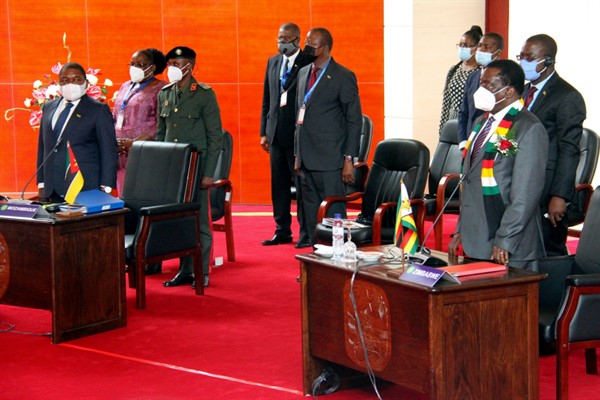On March 24, Ansar al-Sunna, a militant group linked to the Islamic State, launched a bloody attack on the coastal town of Palma, in northern Mozambique’s Cabo Delgado province, leaving at least 61 dead and scores more unaccounted for. The assault, which lasted more than a week and took place near a major liquefied natural gas plant under construction by the French energy giant Total, made global headlines and shined a spotlight on a fast-growing insurgency.
Though the group has since been pushed out of Palma by Mozambican security forces, the attack highlights the danger should the insurgents expand their ability to conduct amphibious operations. In a similar raid last year, al-Sunna managed to briefly capture the key seaport of Mocimboa da Praia in a coordinated attack from land and sea. Mocimboa da Praia lies along the Mozambique Channel, the stretch of water between Mozambique and Madagascar through which 30 percent of the world’s tanker traffic passes each year.
Both attacks were well-planned for maximum impact. In the Palma attack, for instance, militants deliberately waited until Total brought its foreign staff back after a two-month hiatus in operations over security concerns. Ongoing al-Sunna operations indicate that the militants are growing more capable and sophisticated. In addition, Mozambican security forces arrested 12 Iraqi nationals last November on suspicion of aiding the insurgents, suggesting they could be receiving transnational support and guidance.

